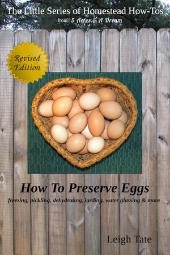Judith Browning wrote:Do you know the optimum temperature for keeping a ferment?
Judith -
If by "optimum" you mean promoting the beneficial lactobacillus that do well in cooler temps but suppressing the harmful bacteria that like warmer temps, then I researched this many years back. Couldn't tell you all my sources, but there was pretty good consistency in what I found from popular and academic sources. And my personal experience confirms the research, if that counts for anything.
Low 60s Fahrenheit or around 15-17 Celsius is what I took away as the ideal target for that purpose. Below that, the lactofermentation slows down a lot, and above it the growth of potentially harmful bacteria begins. Another factor, though, is consistency. It's better to have a consistent temperature even if it is slightly higher than the ideal than to have temperature that fluctuates. Temperatures up to the low 70s F are less ideal but the danger zone for the harmful anaerobic bacteria really starts in the mid-to-high 70s.
I used to have a modified mini-fridge with an add-on temperature sensor that kept the temperature at exactly 62 degrees. The ferments were great, but the sealed, cool, moist environment promoted mold growth so I had to clean it a lot. When the fridge broke, I didn't bother trying to replace it.
Now I usually ferment at around 70 F on a shelf in the kitchen and then stick it in the fridge.
If others have different facts/opinions/experiences, I'd love to compare.







